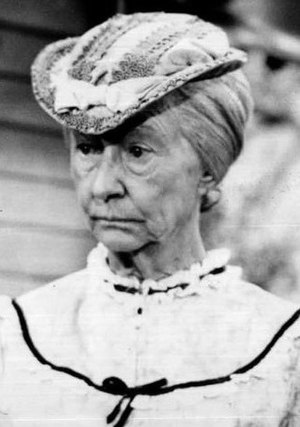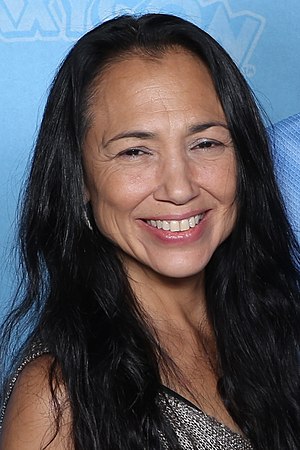Discover Your Roots
SIGN UPDiscover Your Roots
SIGN UPIrene is a female name of Greek origin, derived from the Greek word "εἰρήνη" meaning "peace". In Greek mythology, Eirene was the goddess of peace, giving the name a strong and peaceful connotation. It was also the name of an 8th-century Byzantine empress, Irene of Athens, and has been associated with several saints. The name Irene is a timeless choice, reflecting a desire for harmony and tranquility. With its Greek roots and peaceful meaning, Irene carries a sense of grace and serenity. Whether inspired by mythology, history, or faith, Irene remains a beautiful and meaningful name, symbolizing the universal longing for peace.

Irene Cara Escalera (March 18, 1959 – November 25, 2022) was an American singer and actress who achieved fame for her role as Coco Hernandez in the 1980 musical film Fame, and for recording the film's title song "Fame," which topped charts worldwide. Her co-writing and performance of the song "Flashdance... What a Feeling" from the film Flashdance earned her an Academy Award and a Grammy Award. Before her breakthrough with Fame, Cara portrayed Sparkle Williams in the original 1976 musical drama film Sparkle. Born and raised in the Bronx, New York City, Cara began her performing career on Spanish-language television and made early TV appearances on The Original Amateur Hour and The Tonight Show. She also appeared in Broadway and off-Broadway shows, garnering international acclaim for her roles in Roots: The Next Generations and Guyana Tragedy: The Story of Jim Jones. The 1980 hit film Fame propelled her to stardom, leading to Grammy Award nominations and a Golden Globe nomination. Irene Cara's impactful career in music and film continues to be celebrated, and her contributions have left an indelible mark on the entertainment industry.

Irene Ryan, born Irene Noblitt, was an American actress and comedian known for her versatile success in vaudeville, radio, film, television, and Broadway. She gained widespread recognition for her portrayal of Daisy May "Granny" Moses on the iconic TV series The Beverly Hillbillies (1962–1971), which earned her Emmy Award nominations for Outstanding Lead Actress in a Comedy Series in 1963 and 1964. Ryan's performing career began at the young age of 11, and she later teamed up with writer-comedian Tim Ryan, performing as "Tim and Irene" in vaudeville and short comedies. She also appeared in movies and radio programs, showcasing her talent and humor. In 1972, Irene Ryan starred as Berthe in the Broadway musical Pippin, and she received a Tony Award nomination for her performance. Her contributions and talent were further recognized with a two-year contract for performances at the Sahara Hotel in Las Vegas and additional award nominations throughout her career. Irene Ryan's legacy continues to be celebrated for her remarkable contributions to the entertainment industry across various platforms.

Irene Bedard, born on July 22, 1967, is an Alaska Native actress known for her portrayal of Native American lead roles in various films. She gained recognition for her role as Suzy Song in the 1998 film Smoke Signals and for voicing the character Pocahontas in the 1995 animated film. Bedard, an enrolled citizen of the Native Village of Koyuk in Alaska, graduated from Dimond High School in Anchorage and studied musical theater at The University of the Arts in Philadelphia, Pennsylvania. In 1994, she received a Golden Globe Award nomination for her role in Lakota Woman: Siege at Wounded Knee, becoming the first Native American woman to achieve this honor. Notably, Bedard has been actively involved in environmental groups advocating for the protection of sacred lands. Throughout her career, she has appeared in various films, television series, and music videos, showcasing her versatile talent. In her personal life, Bedard was married to musician Denny Wilson and faced legal issues in 2020 and 2022. Despite these difficulties, she continues to contribute to the entertainment industry and is set to appear in upcoming film and TV projects.

Irene Adler is a remarkable fictional character from the Sherlock Holmes stories by Sir Arthur Conan Doyle. She is a former opera singer and actress, prominently featured in the short story "A Scandal in Bohemia," published in July 1891. Despite only appearing in one story, Adler stands out as one of the most notable female characters in the Sherlock Holmes series. Renowned for her intelligence and cunning, she outsmarts Holmes and evades his traps, earning his respectful acknowledgment as "the Woman." Though initially depicted as having no romantic interest in Adler, some derivative works reinterpret her as a romantic interest for Holmes. Her independence, adaptability, and intelligence are consistently portrayed in various adaptations, but criticisms have been raised regarding attempts to blend these qualities with seduction and manipulation. In Doyle's story, Adler is portrayed as a contralto or soprano who becomes the lover of a powerful aristocrat, setting the stage for an intriguing plot that unfolds as Holmes is outwitted by her. Her character has been suggested to have been inspired by real-life figures such as Lola Montez and Lillie Langtry. Adler is a unique character in the Holmes stories, possessing a significant amount of agency and standing out from other female characters in the canon.

Irene Dunne, born Irene Marie Dunn on December 20, 1898, was a celebrated American actress known for her versatile performances during the Golden Age of Hollywood. Despite initially aspiring to become an opera singer, Dunne transitioned into acting and made her Hollywood debut in the musical "Leathernecking" (1930). She then went on to star in the successful musical "Show Boat" (1936) and appeared in a total of 42 movies, earning five Academy Award nominations for her exceptional portrayals in various genres, including western drama, screwball comedies, romance, and drama. Although she never won an Academy Award, Dunne's acting prowess has been widely praised by critics, often overshadowed by later remakes and better-known co-stars. She became renowned for her collaborations with notable actors such as Cary Grant and Charles Boyer, delivering memorable performances in films like "My Favorite Wife" (1940) and "Love Affair" (1939). Beyond her illustrious career in Hollywood, Irene Dunne devoted her retirement to philanthropy and advocacy work. She was appointed as a delegate for the United States to the United Nations by President Dwight D. Eisenhower, where she championed refugee-relief programs and advocated for world peace. Her commitment to philanthropy earned her numerous accolades, including honorary doctorates, a Laetare Medal from the University of Notre Dame, and a papal knighthood. In 1985, she was
All images displayed on this page are sourced from Wikipedia or Wikimedia Commons.We use these images under their respective Creative Commons or public domain licenses. Wherever applicable, author attributions and license information are provided. If you believe an image is used incorrectly or outside its license terms, please contact us so that we can review and correct the issue.